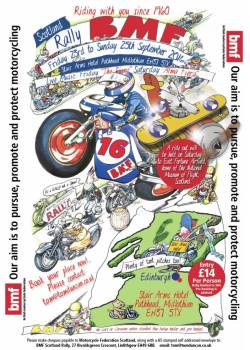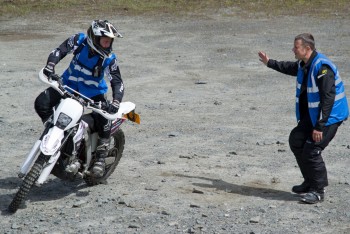Press releases are a presentation of facts, written especially for journalists in the hope of publication or broadcast. They are an opportunity for brands, businesses and organisations to reach their target audience through the medium of the media.
They aim to tell the world about any of your own interesting stories, which could be anything from product launches and new appointments to events, innovations or award wins.
Although becoming less important with the explosion of social media and the digital revolution transforming media as we know it, they can still be very effective at securing positive media coverage and are therefore a great way to boost your profile and subsequently attract new customers.
Press releases are either written by yourself, someone within your company or an external supplier such as a PR agency or freelancer.
No matter who writes them there are many common mistakes people make when drafting press releases. Here are the top 10 and how you can avoid making them yourself...
Title | Third person | Information | Punctuation | Lazy copy-writing | Including quotes | Using CAPS | Short is not always sweet | Press releases are promotional - not advertisements | !!!!!!!!!!!! and !
Mistake 1. Your title isn't working
The title of your press release is the first thing a journalist will see, so make it concise, enticing and gives a good overview of your story. Make your title something that will encourage the journalist to keep reading. Avoid lengthy, detailed titles that go on and on and on... Keep it punchy. If you really must use puns, make sure they are witty and avoid any cliches at all times.
Mistake 2. Writing in the first person
If you read any news story, you'll notice everything is written in the third person – unless we're talking about quotes from actual people, of course. There will never be any 'we did this' or 'I think that' within the body of a well-written press release. You have to imagine that someone else is telling your story at all times. A good tip is to pick up any newspaper and see how stories are written. You'll notice everything is in the third person – as though the journalist is telling the reader about someone or something else.
Mistake 3. Not providing enough information
You can't make assumptions that journalists will know everything about you, so make sure you include all the facts. Try to add a summary in your first paragraph, including things like where you're based, your company name and the whole angle of the story. You wouldn't believe the amount of times I've had to use Google to look up where a company is based, so I can add it to their story on Creative Boom. Some journalists won't be as patient, so make sure you add all the information.
Mistake 4. Forgetting to add proper punctuation
If you're going to write a press release it's essential you use proper punctuation throughout. Journalists are so time and resource poor these days, so make their job as easy as possible by providing 'ready to publish' copy, i.e. so they don't have to muck about and double check everything you've written.
By supplying first-class copy first time, it will also gain you a solid reputation as someone who is reliable and provides quality press releases every time... someone they'll want to publish stories for again and again.
Mistake 5. Lifting copy from an internal newsletter or website
Copy written specifically for your own website or internal company newsletter will not work for a press release. It will undoubtedly be written in the first person, be too self-promotional and won't have a journalist in mind. Don't be lazy by providing something that you've already used internally. Start from scratch and write your news story specifically for the newspaper or magazine you'll be targeting, i.e. copy their own style of writing.
Mistake 6. Not making the most of quotes
Once you've established the angle of your story, you should always provide one or two quotes from yourself or a spokesperson within your company. But whatever you do, don't let these quotes go to waste. They are the only thing journalists can't change, so make the most of them by throwing in some strong key messages. Don't repeat what has already been said elsewhere in the press release – use quotes as an opportunity to really sell yourself and your business. Keep it positive, upbeat and to the point. Just remember to make the most of it.
Mistake 7. Using CAPS
Something that really bugs journalists is the use of CAPS to emphasise certain names or words throughout a press release. For example, CREATIVE BOOM is an online magazine for the creative industries. It just looks odd and adds unnecessary workload for the journalist, i.e. they'll only have to go back through the entire release and change everything to lowercase. Avoid CAPS because you don't need to highlight your company's name – it will be quite obvious without.
Mistake 8. Short isn't always sweet
Although you never want to waffle when drafting press releases, don't make the mistake of not providing enough content. More than anything, a journalist will want to get all the facts so make sure you include as much information as possible. You can still be concise and stick to the point but just don't forget to include every little detail. If in doubt, consider the 'Who, What, Where, When Why and How?' golden rule and whether you have answered all of those essential questions.
Mistake 9. Making your copy too promotional
When you've completed your press release, sit back and read it through. Does it scream 'Buy Me!' or have you simply informed the reader about your company news? You see, although press releases are promotional, they are not advertisements. They are a presentation of facts, so keep it factual and use objective copy at all times.
Mistake 10. Over-hyped copy (exclamation mark, exclamation mark)
Copy that is littered with exclamation marks and wild claims about your products and services screams spam and will only end up in a journalists junk folder. Avoid unnecessary adjectives like 'amazing' or 'beautiful' because it will only read like an advertisement and that's something you must avoid.
Read the full article here
Article from Katy Cowan
A writer, journalist and all-round creative, Katy is Founding Editor of Creative Boom. She launched the site in 2009 to support others, as well as indulge her passion for creativity. She loves to discover and champion emerging art, photography and design. Follow her @CBKatyLou









